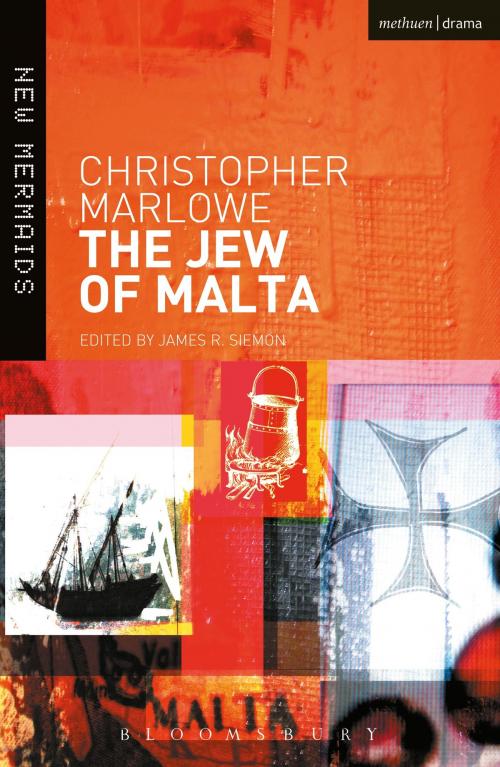| Author: | Christopher Marlowe | ISBN: | 9781408144909 |
| Publisher: | Bloomsbury Publishing | Publication: | November 25, 2013 |
| Imprint: | Methuen Drama | Language: | English |
| Author: | Christopher Marlowe |
| ISBN: | 9781408144909 |
| Publisher: | Bloomsbury Publishing |
| Publication: | November 25, 2013 |
| Imprint: | Methuen Drama |
| Language: | English |
'Tell me worldlings, underneath the sun, If greater falsehood ever has been done'
The Jew of Malta, written around 1590, can present a
challenge for modern audiences. Hugely popular in its day, the play
swings wildly and rapidly in genre, from pointed satire, to bloody
revenge tragedy, to melodrmatic intrigue, to dark farce and grotesque
comedy. Although set in the Mediterranean island of Malta, the play
evokes contemporary Elizabethan social tensions, especially the highly
charged issue of London's much-resented community of resident merchant
foreigners. Barabas, the enormously wealthy Jew of the play's title,
appears initially victimized by Malta's Christian Governor, who quotes
scripture to support the demand that Jews cede their wealth to pay
Malta's tribute to the Turks. When he protests, Barabas is deprived of
his wealth, his means of livelihood, and his house, which is converted
to a nunnery. In response to this hypocritical extortion, Barabas
launches a horrific (and sometimes hilarious) course of violence that
goes well beyond revenge, using murderous tactics that include
everything from deadly soup to poisoned flowers. The play's sometimes
complex treatment of anti-Semitism and its relationship to
Shakespeare's Merchant of Venice remain matters of continuing scholarly reflection.
This student edition contains a lengthy Introduction with background
on the author, date and sources, theme, critical interpretation and
stage history, as well as a fully annotated version of the playtext in
modern spelling.
James R. Siemon is Professor of English at Boston University.
'Tell me worldlings, underneath the sun, If greater falsehood ever has been done'
The Jew of Malta, written around 1590, can present a
challenge for modern audiences. Hugely popular in its day, the play
swings wildly and rapidly in genre, from pointed satire, to bloody
revenge tragedy, to melodrmatic intrigue, to dark farce and grotesque
comedy. Although set in the Mediterranean island of Malta, the play
evokes contemporary Elizabethan social tensions, especially the highly
charged issue of London's much-resented community of resident merchant
foreigners. Barabas, the enormously wealthy Jew of the play's title,
appears initially victimized by Malta's Christian Governor, who quotes
scripture to support the demand that Jews cede their wealth to pay
Malta's tribute to the Turks. When he protests, Barabas is deprived of
his wealth, his means of livelihood, and his house, which is converted
to a nunnery. In response to this hypocritical extortion, Barabas
launches a horrific (and sometimes hilarious) course of violence that
goes well beyond revenge, using murderous tactics that include
everything from deadly soup to poisoned flowers. The play's sometimes
complex treatment of anti-Semitism and its relationship to
Shakespeare's Merchant of Venice remain matters of continuing scholarly reflection.
This student edition contains a lengthy Introduction with background
on the author, date and sources, theme, critical interpretation and
stage history, as well as a fully annotated version of the playtext in
modern spelling.
James R. Siemon is Professor of English at Boston University.















